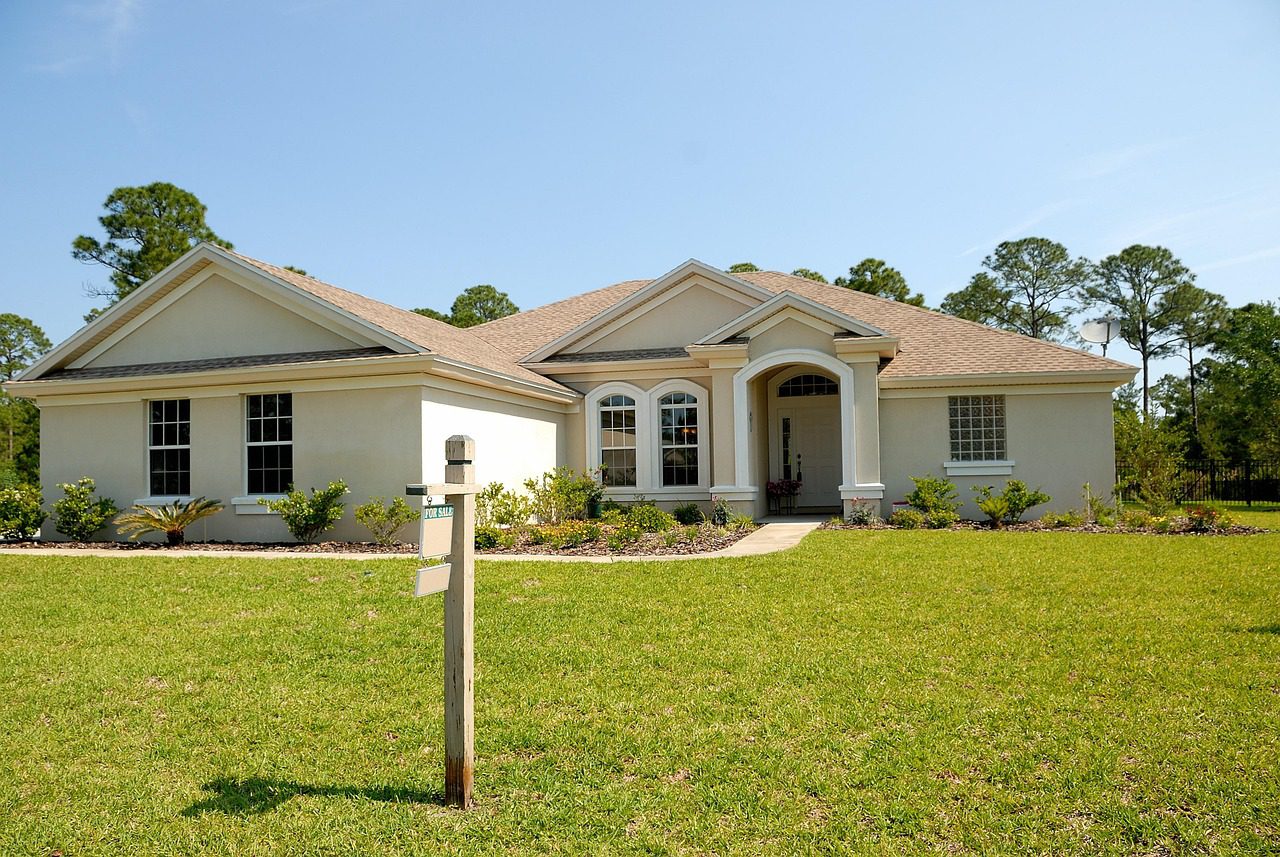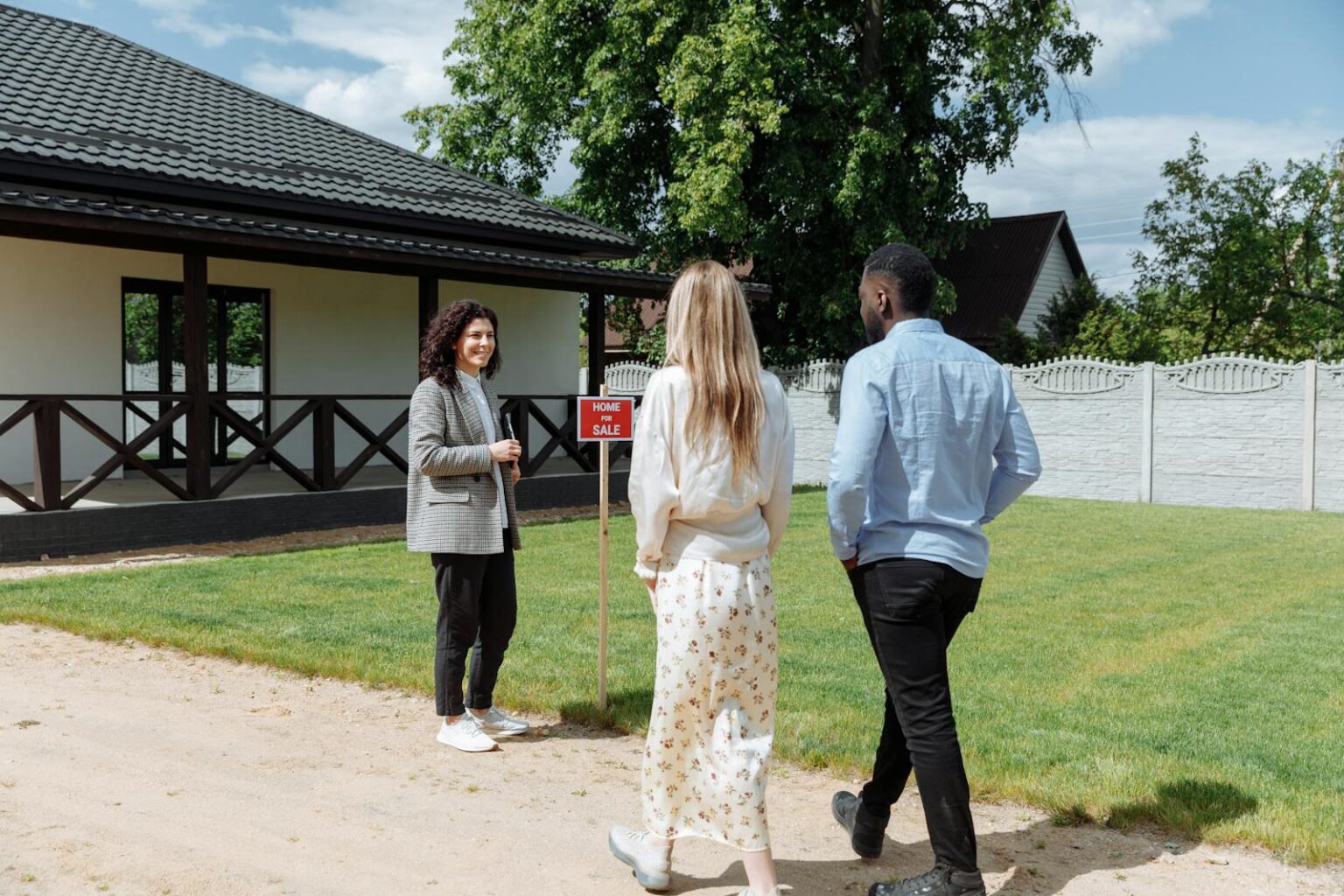Can You Get a Mortgage on an As-Is House?
An “as-is” house is a property sold in its current condition, with the seller making no repairs or improvements before the sale. Buyers must accept the property with all its existing flaws, ranging from minor cosmetic issues to significant structural concerns. This type of sale attracts attention due to its potential for lower prices than move-in-ready homes. As-is properties are frequently listed by sellers who want to close quickly, such as banks with foreclosed homes or individuals handling estates.
For buyers, purchasing an as-is home can be an appealing option, especially for those looking to invest in real estate, flip houses, or find a property below market value. However, the risks associated with unexpected repairs and hidden defects mean careful consideration is necessary. While purchasing a fixer-upper can seem exciting, financing such properties can present challenges.
A common question many potential buyers face is whether securing a mortgage for an as-is house is possible. Some lenders are cautious about financing these properties due to the unknowns tied to their condition.
Understanding As-Is Homes

An “as-is” home in real estate is a property sold in its current state with no guarantees or warranties from the seller regarding its condition. The seller explicitly states that they will not make any repairs or improvements, and any issues or defects become the buyer’s responsibility after purchase. This type of listing signals that the property may require significant maintenance or updates, although not all as-is homes are in poor condition.
Common Reasons Sellers List Properties As-Is
Sellers may choose to list a property as-is for several reasons:
- Financial Constraints: The seller may lack the funds to complete necessary repairs.
- Inherited Properties/Estate Sales: Family members selling inherited homes may prefer to sell quickly without investing in renovations.
- Foreclosures and Short Sales: Banks or financial institutions managing foreclosures often sell as-is to recover losses without making repairs.
- Time Sensitivity: Sellers looking for a fast closing may opt for an as-is sale to attract cash buyers or investors.
- Extensive Repairs Needed: If repairs are extensive or costly, the seller may leave the property as-is rather than invest in improvements.
Potential Benefits and Risks for Buyers
Benefits:
- Lower Purchase Price: As-is homes are typically priced below market value, offering opportunities for buyers to get more houses for less money.
- Investment Potential: Buyers willing to renovate can add significant value to the property.
- Faster Closing Process: The process can move more quickly without repair negotiations.
Risks:
- Unforeseen Repair Costs: Buyers may discover hidden defects after purchase.
- Limited Financing Options: Not all lenders are willing to finance as-is properties, especially if the home is in poor condition.
- High Renovation Expenses: Some as-is homes require extensive renovations, potentially exceeding initial budgets.
Typical Issues Found in As-Is Homes
As-is homes can present a variety of challenges, including:
- Structural Damage: Foundation issues, roof problems, or deteriorating walls.
- Outdated Systems: Aging electrical, plumbing, and HVAC systems that may need replacing.
- Cosmetic Damage: Worn flooring, peeling paint, or outdated fixtures.
- Pest or Mold Issues: Infestations or mold growth that can lead to expensive remediation.
- Code Violations: Unpermitted additions or outdated safety features that must be brought up to code.
Understanding the realities of as-is homes helps buyers weigh the potential rewards against the risks and make informed decisions before purchasing.
Can You Get a Mortgage on an As-Is House?

Yes, getting a mortgage on an as-is house is possible, but there are limitations and hurdles to overcome. Lenders are cautious when financing properties that may require extensive repairs, as the home’s condition directly affects its value and marketability. While some loans are designed to accommodate as-is purchases, others may require the property to meet specific minimum standards.
How Lenders Assess Risk with As-Is Properties
Lenders view as-is homes as higher-risk investments. The primary concern is whether the home is adequate collateral for the loan. If the house is in poor condition and requires costly repairs, the lender may worry that the property’s value won’t cover the loan amount if the buyer defaults. This risk assessment influences the lender’s decision to approve or deny financing.
Importance of Appraisals and Inspections
Appraisals and inspections are important in the mortgage process for as-is homes. Lenders require an appraisal to determine the property’s current market value. If the appraisal comes in lower than the agreed purchase price, the loan amount may be reduced, requiring the buyer to cover the difference. Inspections, while not always mandatory for lenders, are highly recommended for buyers to uncover potential hidden issues.
The Role of Property Condition in Mortgage Approval
The property must typically meet basic livability and safety standards for conventional mortgages. Significant structural damage, major system failures, or hazards such as mold or water damage can lead to loan denial. Conversely, minor cosmetic issues or outdated features may not impact the approval process as long as the home is habitable.
Scenarios Where Mortgages Are Likely to Be Approved or Denied
Approved:
- The home requires cosmetic updates but is structurally sound
- The property meets minimum safety and livability standards
- Minor repairs can be deferred until after the purchase
Denied:
- Major structural issues (e.g., foundation cracks, roof leaks)
- Non-functional plumbing, electrical, or HVAC systems
- The home poses health or safety hazards
In cases where the home fails to meet standards, renovation loans, such as FHA 203(k) or Fannie Mae HomeStyle loans, provide a viable solution by financing both the purchase and necessary repairs. Buyers interested in as-is properties should be prepared to explore these alternative financing options to secure their dream home.
Types of Mortgages Available for As-Is Homes

Financing an as-is home can present challenges, but several mortgage options are available depending on the condition of the property and the buyer’s financial situation. Each option comes with specific requirements and limitations, from conventional loans to specialized renovation financing. Understanding these options helps buyers select the best route to homeownership.
Conventional Loans
Conventional loans, offered by private lenders, are the most common type of mortgage. However, they can be more challenging to secure for as-is homes. Before approving the loan, lenders typically require the property to meet basic health, safety, and structural standards.
Requirements for As-Is Homes:
- The home must be habitable with no major structural issues.
- Critical systems, such as plumbing, heating, and electrical, must function properly.
- The property’s value must align with the loan amount based on the appraisal.
Why Conventional Loans May Be Harder to Secure:
Conventional loans are risk-averse, and properties with significant defects or hazards often result in loan denial. Buyers must either negotiate repairs with the seller or seek alternative financing if the home doesn’t meet the lender’s requirements.
FHA Loans
The Federal Housing Administration (FHA) offers loans with more lenient standards, making them a popular choice for first-time homebuyers and those purchasing as-is homes. FHA loans are government-backed, which reduces the risk for lenders. However, FHA’s Minimum Property Standards (MPS) still apply.
Minimum Property Standards (MPS):
- The home must be safe, secure, and structurally sound.
- Major systems must be functional (roof, foundation, electrical, etc.).
- Cosmetic issues are generally acceptable if the property meets livability standards.
Options for As-Is Homes:
Homes with minor defects that don’t compromise livability may qualify for FHA loans. However, properties with significant safety issues may not pass the appraisal process unless repairs are completed beforehand.
VA Loans
Veterans Affairs (VA) loans provide flexible financing options for eligible military service members and veterans. These loans require no down payment but are subject to property condition standards similar to FHA loans.
How VA Appraisers Assess Homes:
VA appraisers evaluate properties to ensure they meet the VA’s Minimum Property Requirements (MPR). The focus is on safety, sanitation, and structural integrity.
Restrictions and Possibilities:
- Homes with minor issues can qualify, but major repairs must be addressed before closing.
- Sellers are often asked to make necessary repairs for VA buyers.
- Buyers may need to negotiate repairs or seek alternative financing for properties that don’t meet VA standards.
Renovation Loans (FHA 203k, Fannie Mae HomeStyle)
Renovation loans are an excellent option for as-is homes requiring significant repairs. These loans bundle the purchase price with the cost of renovations, allowing buyers to finance both in one mortgage.
Combining Purchase and Renovation Costs:
- FHA 203(k): Designed for homes needing structural or non-structural repairs.
- Fannie Mae HomeStyle: Offers greater flexibility for luxury upgrades and improvements.
Benefits of Renovation Loans:
- Buyers can purchase properties that wouldn’t qualify for conventional financing.
- The loan covers necessary repairs and improvements, enhancing property value.
- Renovation loans often require minimal down payments, making them accessible to more buyers.
Hard Money Loans
Hard money loans are short-term financing options private investors provide rather than traditional lenders. These loans are based on the property’s value rather than the buyer’s creditworthiness.
Short-Term Financing Options:
- Higher interest rates and shorter repayment periods (typically 12-24 months).
- Ideal for investors or buyers planning to renovate and resell quickly.
- Fast approval process with fewer property condition requirements.
Who Benefits from Hard Money Loans:
- Investors purchasing foreclosures or fixer-uppers.
- Buyers who plan to renovate quickly and refinance with a traditional mortgage.
While securing financing for as-is homes can be challenging, exploring these mortgage options allows buyers to find solutions that fit their needs. Whether opting for FHA loans, renovation financing, or hard money loans, buyers have pathways to turn as-is properties into livable, valuable homes.
Factors That Influence Loan Approval

Several factors are considered when determining whether the loan will be approved when applying for a mortgage on an as-is home. Lenders assess the property’s overall condition and the buyer’s financial health to minimize their risk. Understanding these factors can help buyers prepare for potential obstacles and improve their financing chances.
Appraisal Outcomes and Impact on Loan Approval
Appraisals are one of the most critical steps in the mortgage approval process. Lenders require an appraisal to ensure the home’s value aligns with the loan amount. For as-is properties, appraisers carefully evaluate the home’s condition and flag any significant issues affecting its livability or marketability. If the appraisal is lower than the purchase price, the lender may reduce the loan amount or deny the loan altogether. In such cases, buyers must either renegotiate the price, cover the difference, or explore renovation loan options.
Loan-to-Value (LTV) Ratio Considerations
The loan-to-value (LTV) ratio compares the loan amount to the home’s appraised value. Lenders may require a lower LTV ratio for as-is homes to reduce their risk exposure. A higher down payment can help offset this, making it easier to secure financing even if the home needs repairs. For example, while conventional loans typically allow for an LTV of 80%, lenders may lower this for homes with visible defects, requiring buyers to contribute more upfront.
Credit Score and Buyer Financial Health
A buyer’s credit score and overall financial stability are significant factors in mortgage approval. Lenders are more likely to approve loans for buyers with strong credit scores and low debt-to-income (DTI) ratios, even if the property condition presents some concerns. Buyers with higher credit scores may also qualify for better interest rates and more favorable terms, providing additional flexibility in managing potential repair costs.
Structural Issues vs. Cosmetic Problems
Lenders distinguish between structural issues and cosmetic problems when evaluating as-is homes. Minor concerns such as peeling paint, worn carpets, or outdated fixtures typically won’t affect loan approval. However, major structural issues, such as foundation cracks, roof leaks, or non-functioning plumbing, can lead to loan denial. Lenders prioritize safety and livability, and homes with severe defects often fail to meet these requirements.
Impact of Major Repairs
Key systems like the roof, foundation, electrical wiring, and plumbing determine a property’s overall condition. Lenders may require repairs before closing if the appraisal highlights significant damage to any of these areas. Alternatively, buyers can explore renovation loans or negotiate with the seller to complete essential fixes.
By addressing potential concerns early and understanding what lenders look for, buyers can better navigate the process and improve their chances of securing a mortgage for an as-is home.
Steps to Improve Mortgage Approval for As-Is Homes
Securing a mortgage for an as-is home can be challenging, but with the right approach, buyers can improve their chances of approval. By proactively addressing potential red flags and working closely with lenders, buyers can present a stronger case and demonstrate their commitment to making the property livable and valuable.
Get a Thorough Inspection Before Applying
A comprehensive home inspection is highly recommended when purchasing an as-is property. While lenders often require appraisals, an independent inspection provides a detailed assessment of the home’s condition, uncovering hidden issues that may impact financing. This step allows buyers to identify major repairs early, determine the overall cost of renovations, and decide whether the property is worth pursuing. A clean inspection report or documentation showing manageable repair needs can reassure lenders and facilitate approval.
Highlight Repairs the Buyer Will Cover Post-Purchase
Lenders may be hesitant to approve a loan if significant repairs are needed. Buyers can improve their chances by highlighting which repairs they intend to handle after closing. This can be done by submitting cost estimates from contractors and outlining a clear post-purchase plan. Lenders are more likely to approve loans if they see the buyer is financially prepared to address the property’s issues, ensuring its value will increase over time.
Provide a Detailed Renovation Plan
Submitting a detailed renovation plan is essential for buyers considering renovation loans, such as an FHA 203(k) or Fannie Mae HomeStyle. This plan should outline all proposed improvements, estimated costs, and a projected timeline for completion. Lenders need assurance that the funds will be used effectively to bring the property up to standard, and a thorough plan demonstrates the buyer’s readiness and commitment.
Negotiate with the Seller to Fix Critical Issues
While as-is homes typically sell without repairs, there is room for negotiation, especially if issues likely hinder mortgage approval. Sellers may agree to fix significant problems, such as roofing or plumbing, to avoid losing the sale. Buyers should focus on negotiating for essential repairs that impact safety or livability, leaving cosmetic changes for after closing.
Work with Lenders Experienced in As-Is Properties
Not all lenders are willing to finance as-is homes, but some specialize in these transactions. Partnering with a lender experienced in as-is properties increases the likelihood of approval. These lenders often have more flexible underwriting guidelines and can offer alternative loan products, such as hard money or renovation loans, to accommodate unique property conditions.
By taking these proactive steps, buyers can overcome common obstacles and improve their chances of securing a mortgage, turning as-is properties into valuable investments.
Alternatives if Traditional Mortgages Are Not Available
If traditional mortgages are not an option for purchasing an as-is home, buyers can explore alternative financing methods. These solutions can provide the flexibility to secure the property while navigating repair and renovation costs.
Seller Financing
Seller financing allows buyers to bypass traditional lenders by negotiating directly with the property owner. In this arrangement, the seller acts as the lender, and the buyer makes monthly payments until the purchase price is paid in full. This option can be advantageous for homes not meeting standard mortgage requirements. Sellers may be more willing to negotiate terms, including lower down payments or flexible interest rates, to close the sale. However, buyers should clearly outline the terms in a legal agreement.
Lease-to-Own Agreements
Lease-to-own agreements allow one to live in the home while working toward ownership. A portion of the monthly rent goes toward the eventual purchase price, allowing buyers time to secure financing or make necessary repairs to meet lender requirements. This approach benefits buyers who may need to improve their credit or save for a down payment while gaining access to the property.
Personal Loans or Lines of Credit
For homes requiring immediate repairs, personal loans or home improvement lines of credit can be used to cover initial costs. Although these options often come with higher interest rates, they provide short-term financing that can make the property eligible for traditional mortgages after renovations. This is particularly useful for buyers planning to refinance once the home is brought up to standard.
Partnering with Investors or Co-Buyers
Partnering with an investor or co-buyer allows buyers to share the financial burden of purchasing and renovating an as-is home. Investors often bring experience and additional capital, enabling quicker repairs and property appreciation. Co-buyers, such as family members or friends, can split the mortgage and renovation costs, making it easier to manage expenses.
Exploring these alternatives can help buyers move forward with purchasing an as-is home, even when traditional financing options are limited.
Why Work with Home Run Home Loans for As-Is Properties
Purchasing an as-is home can be complex, but it becomes a smoother and more achievable process with the right mortgage partner. Home Run Home Loans specializes in securing financing for unique properties, including as-is homes that may not meet conventional lending standards. Our expertise allows buyers to explore various mortgage options tailored to their specific needs, ensuring they find a solution that aligns with their goals and budget.
At Home Run Home Loans, we provide access to a broad range of mortgage products, including FHA 203(k) renovation loans, Fannie Mae HomeStyle loans, and other flexible financing options. These products allow buyers to roll the cost of necessary repairs into their mortgage, transforming fixer-uppers into dream homes without needing separate funding sources.
Our team takes a personalized approach, guiding clients through each step of the process – from initial application to final approval. We work closely with appraisers, inspectors, and contractors to ensure the home meets lender requirements, reducing stress and streamlining the experience.
Home Run Home Loans has helped numerous clients finance and renovate as-is properties, turning potential obstacles into rewarding investments. Testimonials from past buyers highlight our dedication, responsiveness, and ability to find creative solutions for challenging properties.
If you’re considering purchasing an as-is home, let Home Run Home Loans help you secure the financing you need to make it happen. Contact us today to learn more about how we can turn your vision into reality
Taking the Next Steps
Securing a mortgage for an as-is house is possible, but it often requires navigating additional challenges and exploring specialized financing options. From conventional and FHA loans to renovation and hard money loans, buyers have multiple pathways to turn fixer-upper properties into valuable investments. Buyers can increase their chances of success by understanding the factors that influence loan approval and taking proactive steps, such as obtaining thorough inspections and working with experienced lenders.
Exploring these options with professional guidance ensures buyers make informed decisions and avoid potential pitfalls. Home Run Home Loans offers the expertise and resources necessary to secure financing for as-is properties, providing personalized solutions that match your unique needs.
If you’re ready to take the next step toward purchasing an as-is home, contact Home Run Home Loans today. Our experienced team is here to help you find the right mortgage and turn your vision into reality.

